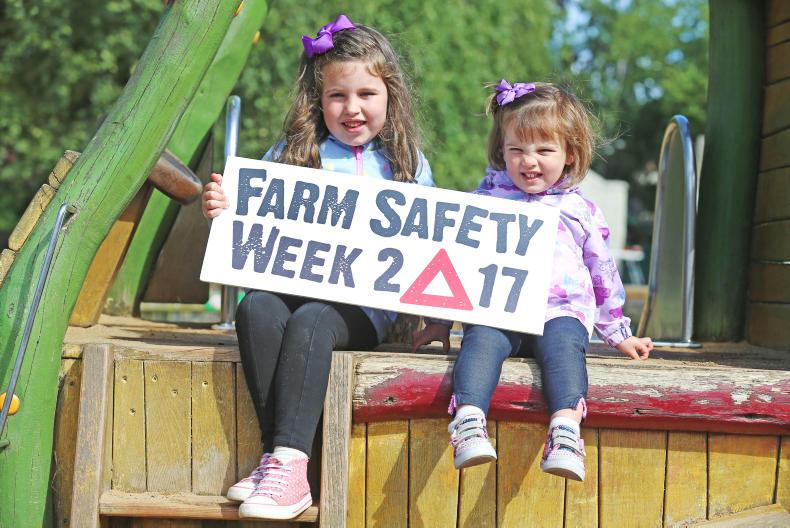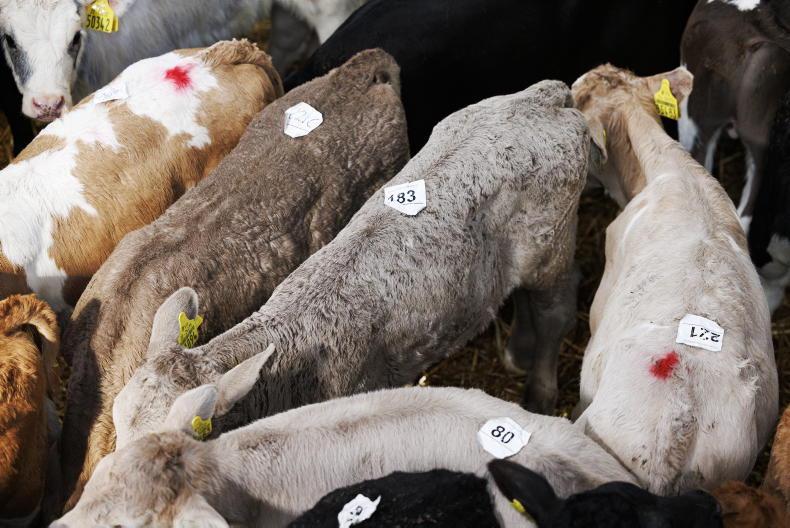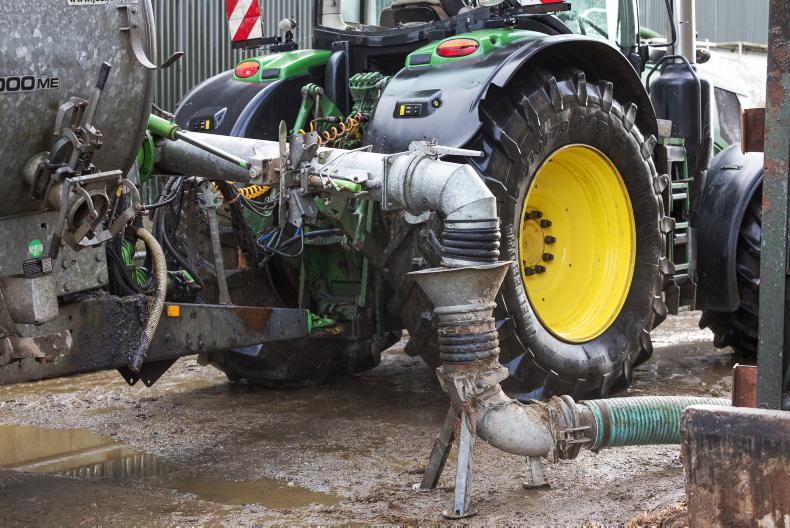DEAR SIR:
Your focus on animal health – “putting animal health at the top of the agenda in 2018” – in the Irish Farmers Journal on 30 December is most welcome. It makes compelling sense to focus on this as animal/herd health is indeed a vital element for farm profitability. There are other benefits that you mentioned and if anyone missed the Irish Farmers Journal in the Christmas rush I will repeat them later.
Before we develop any new focus, I suggest that we might consider how we view herd health as our attitude will determine how we succeed with any new initiatives.
As an industry we must embrace herd health as a positive aspect of our businesses. We can list many benefits but unless we view herd health as a virtue we will struggle to have the necessary impact. Experience teaches us that how we deal with a topic or initiative has a significant bearing on the subsequent success.
I ask us all to reconsider our attitude to this important topic. As an industry we have done so with breeding through ICBF and grass management through Teagasc. Now it is time to do the same with herd health. It is worth repeating the benefits of such a focus. Five main points come immediately to mind:
Healthy herds make more profit.They have a lower carbon footprint per unit of output. Healthy herds use less antimicrobials.Health programmes have a positive impact in international markets and help to differentiate Irish product. The best way to counter the sensationalists that are working against our industry is with a positive response as to how we farm. You ask is our structure (AHI) adequately equipped for such a task, and as a small organisation have we the resources to carry out our work?
In general, I would say yes, but like most other organisations we can always be better. We will not resist constructive agreed changes. If we as an industry rethink our attitude to herd health, much of what we need to do will be easier to deliver.
To date, the annual benefit of the work of AHI has delivered in excess of €150m. BVD is nearing the end, national SCC levels have dropped from 280 to 180, 70% of the cattle now receive a report on the status of parasites control at kill time and we have started on the tough journey of a Johne’s programme. For more detail, visit our website.
I fully accept that this has been funded by farmers but we only proceed with what we do with industry agreement. When we count the cost we must be fair and also quantify the benefit and to date, the balance is very much on the credit side – ie, a very strong return on the investment. We need to use the term investing in herd health rather than it being regarded as a cost.
In the near future, we want to survey farmers and others as to what needs attention in the future. I have heard some people suggest that we should not move on any new disease until we have finished any current programme. This would be fine if the diseases also had patience and waited in line in an orderly fashion. Unfortunately, this is not the case.
We have committed to an IBR initiative and by the look of things this is timely as some very important beef-importing countries want product from herds free of this. There was a large recall of product from a European country pre-Christmas due to a salmonella scare. This is an example of the kind of topics we need to be dealing with in future – tackling known risks.
It is important that we don’t over-worry about the enormity of the task ahead. Two points to consider help us to keep things in perspective. We have really good structures in place – the database, good science/scientists, good vet engagement, DAFM support and farm organisation involvement. Many farms are already involved in top health initiatives, be it vaccination programmes, parasite control and biosecurity protocols. If we could record all of this activity centrally the task ahead might not look so daunting.
We are indeed a small organisation and more resources, if forthcoming, would be used wisely, but I return to my earlier point that we all need to rethink our attitude to herd health. If we continue to view this important topic as an imposition or an inconvenience then we will not reach the heights of what is possible.
We can truly make the national cattle herd as good as the best and better than most. In the challenging times that lie ahead, this may be what will define us in a very competitive world.
DEAR SIR:
Your focus on animal health – “putting animal health at the top of the agenda in 2018” – in the Irish Farmers Journal on 30 December is most welcome. It makes compelling sense to focus on this as animal/herd health is indeed a vital element for farm profitability. There are other benefits that you mentioned and if anyone missed the Irish Farmers Journal in the Christmas rush I will repeat them later.
Before we develop any new focus, I suggest that we might consider how we view herd health as our attitude will determine how we succeed with any new initiatives.
As an industry we must embrace herd health as a positive aspect of our businesses. We can list many benefits but unless we view herd health as a virtue we will struggle to have the necessary impact. Experience teaches us that how we deal with a topic or initiative has a significant bearing on the subsequent success.
I ask us all to reconsider our attitude to this important topic. As an industry we have done so with breeding through ICBF and grass management through Teagasc. Now it is time to do the same with herd health. It is worth repeating the benefits of such a focus. Five main points come immediately to mind:
Healthy herds make more profit.They have a lower carbon footprint per unit of output. Healthy herds use less antimicrobials.Health programmes have a positive impact in international markets and help to differentiate Irish product. The best way to counter the sensationalists that are working against our industry is with a positive response as to how we farm. You ask is our structure (AHI) adequately equipped for such a task, and as a small organisation have we the resources to carry out our work?
In general, I would say yes, but like most other organisations we can always be better. We will not resist constructive agreed changes. If we as an industry rethink our attitude to herd health, much of what we need to do will be easier to deliver.
To date, the annual benefit of the work of AHI has delivered in excess of €150m. BVD is nearing the end, national SCC levels have dropped from 280 to 180, 70% of the cattle now receive a report on the status of parasites control at kill time and we have started on the tough journey of a Johne’s programme. For more detail, visit our website.
I fully accept that this has been funded by farmers but we only proceed with what we do with industry agreement. When we count the cost we must be fair and also quantify the benefit and to date, the balance is very much on the credit side – ie, a very strong return on the investment. We need to use the term investing in herd health rather than it being regarded as a cost.
In the near future, we want to survey farmers and others as to what needs attention in the future. I have heard some people suggest that we should not move on any new disease until we have finished any current programme. This would be fine if the diseases also had patience and waited in line in an orderly fashion. Unfortunately, this is not the case.
We have committed to an IBR initiative and by the look of things this is timely as some very important beef-importing countries want product from herds free of this. There was a large recall of product from a European country pre-Christmas due to a salmonella scare. This is an example of the kind of topics we need to be dealing with in future – tackling known risks.
It is important that we don’t over-worry about the enormity of the task ahead. Two points to consider help us to keep things in perspective. We have really good structures in place – the database, good science/scientists, good vet engagement, DAFM support and farm organisation involvement. Many farms are already involved in top health initiatives, be it vaccination programmes, parasite control and biosecurity protocols. If we could record all of this activity centrally the task ahead might not look so daunting.
We are indeed a small organisation and more resources, if forthcoming, would be used wisely, but I return to my earlier point that we all need to rethink our attitude to herd health. If we continue to view this important topic as an imposition or an inconvenience then we will not reach the heights of what is possible.
We can truly make the national cattle herd as good as the best and better than most. In the challenging times that lie ahead, this may be what will define us in a very competitive world.










SHARING OPTIONS